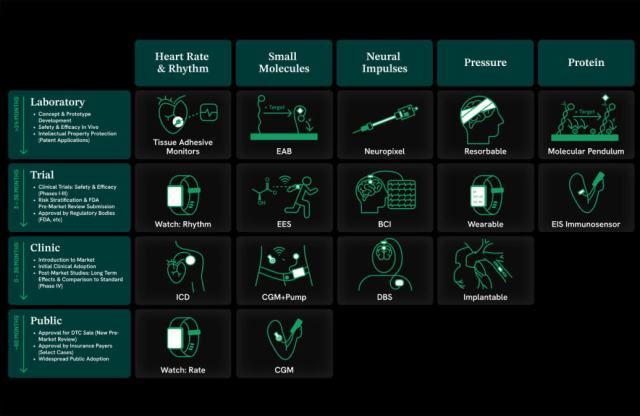Sep 5, 2018 · 3 min read
CZI announces new $12.5 million funding opportunity to bring more engineering expertise to imaging
September 5, 2018 — Today, the Chan Zuckerberg Initiative (CZI) is inviting engineers, physicists, mathematicians, computer scientists, and biologists with expertise in technology development to apply for CZI’s new $12.5 million Imaging Scientists program. These three- to five-year grants will support up to 10 Imaging Scientists at imaging centers in the United States, where they will interface between biology, microscopy hardware, and imaging software to help advance the field of imaging.
The imaging of molecules, cells, and tissues remains central to both biomedical research and clinical practice, yet progress in the imaging field has been slowed by inadequate software and limited sharing of advanced microscopy methods. CZI’s Imaging Scientists RFA seeks to address these issues and move the whole field of imaging forward by increasing collaboration between biologists and technology experts and improving the tools that scientists use for imaging.
“Imaging is at the core of cellular biology — including understanding and identifying disease — and is fundamental to all basic biomedical science,” said Cori Bargmann, Head of Science at the Chan Zuckerberg Initiative. “We believe our Imaging Scientists program can dramatically accelerate biomedicine through improving software and hardware used for imaging and increasing collaboration between biologists and technology experts.”
During the past decade, technical advances in imaging dramatically increased the resolution of both light microscopy and electron microscopy. Improved technological tools will allow CZI’s experimental partners to push forward even more quickly to cure disease.
“Imaging Scientists” might be engineers, physicists, mathematicians, computer scientists, or biologists who have focused on technology development in either microscopy or data analysis fields. The Imaging Scientists will have expertise in either: a) cutting-edge microscopy hardware or b) software for image analysis, both for microscopic and medical images.
A successful imaging program will employ an Imaging Scientist who: a) works collaboratively with experimental biologists on projects at the imaging center; b) participates in courses that disseminate advanced microscopy methods and analysis; c) trains students and postdocs in imaging technology; d) participates in a network of CZI Imaging Scientists to identify needs and drive advances in the imaging field; and e) attends twice-yearly CZI scientific workshops and meetings in imaging and adjacent biomedical areas.
Each grant will fund salary and fringe benefits for an Imaging Scientist at a U.S. imaging center, a modest travel and teaching budget, plus 15% indirect costs. The award period is three years plus an additional two years if the program passes a review at year three. Applications must be submitted by an imaging center at a non-profit university in the United States or a university-affiliated research institute.
For more information and application instructions, please visit CZI’s online grants management portal. Applications must be submitted by October 3rd, 2018 at 5pm PT. For administrative and programmatic inquiries, technical assistance, or other questions pertaining to this RFA, please contact sciencegrants@chanzuckerberg.com.
About the Chan Zuckerberg Initiative:
The Chan Zuckerberg Initiative was launched in December 2015 by Mark Zuckerberg, founder and CEO of Facebook, and Priscilla Chan, a pediatrician and founder and CEO of The Primary School in East Palo Alto. The Chan Zuckerberg Initiative is a new kind of philanthropy that seeks to engineer change at scale. By pairing world-class engineering with grant-making, impact investing, policy, and advocacy work, CZI hopes to build a future for everyone. Initial areas of focus include supporting science through basic biomedical research and education through personalized learning. CZI is also exploring ways to address barriers to justice and opportunity – from criminal justice reform, to expanded access, to economic opportunity and affordable housing.





